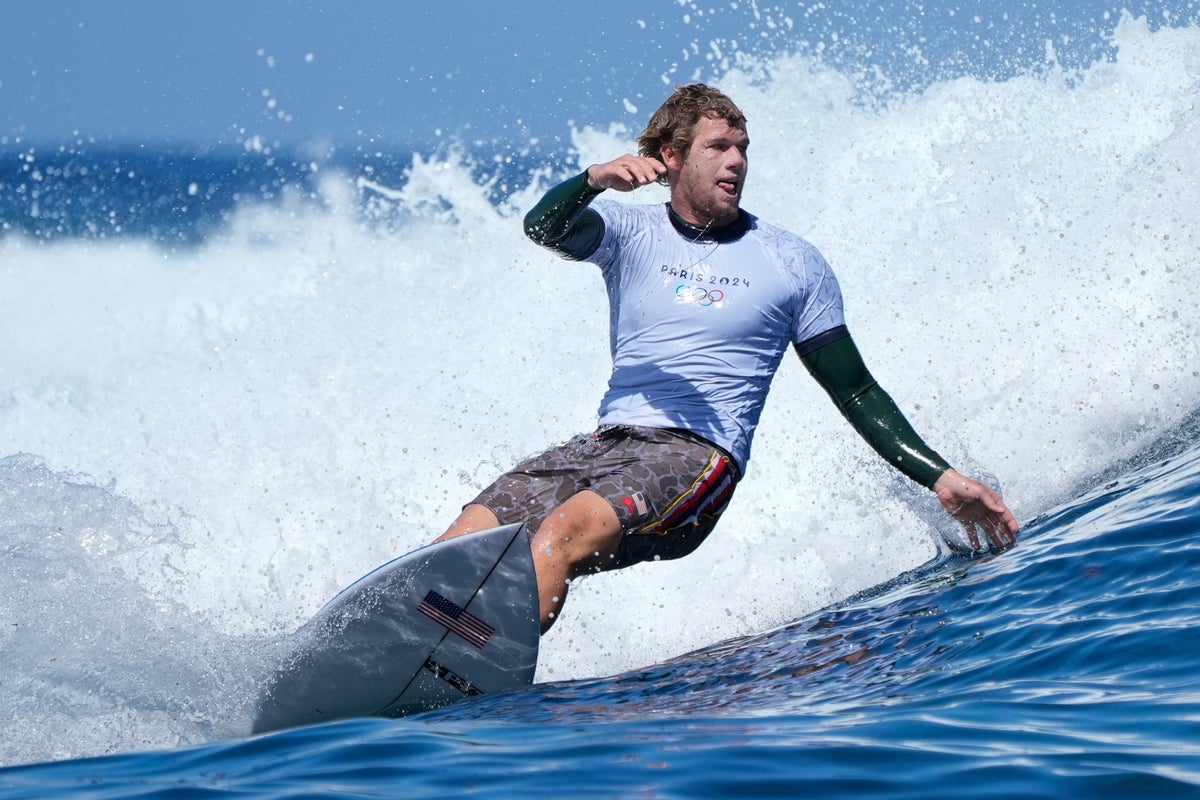
Support truly
independent journalism
The search for the perfect wave has been a part of surfing culture for decades, with surfers traveling from location to location in their quest for the best swells. But with the development of surf forecasting— the prediction of wave swell behavior and breaking— that search has gotten much easier.
This year, it also determines the four days that surfers competing in the Paris Olympics in Tahiti, French Polynesia, will paddle into the ocean in their pursuit for the gold medal.
Here's a look at how surf forecasting is done, how it impacts the Paris Olympics surfing competition and how experts expect climate change to affect future wave forecasting.
What is surf forecasting and how is it done?
Surf forecasting is often considered a branch of meteorology and oceanography as it uses the same tools and methods adopted in weather forecasting and the study of the ocean.
Forecasters monitor wind and storms that blow over the ocean — sometimes thousands of miles out at sea — transferring their energy in the water and creating most waves. They then calculate how the storms will move over the water and how long they'll take to reach shores.
Some old-school forecasters do their calculations by hand, but software has been developed to help semi-automate the data that creates forecasting models. Forecasts can be fairly accurate up to 10 days in advance, said Nathan Cool, a wave forecaster and creator of WaveCast. But he warns that it's not an exact science.
That doesn't stop surfers around the world from regularly checking forecasts shared on popular surfing websites to help decide if they want to surf that day.
Does climate change impact surf forecasting?
Yes, but the changes are likely to be gradual rather than a shock event, said Cool.
That’s because rising seas and changes in geographic features due coastal erosion or shifting shoal shapes will change the coasts, impacting how and where waves break.
“Features like these take long time to change, so local surfers may see less beach over time, local breaks may change, but nothing extreme in the short term,” Cool said. “But long term will see inevitable see changes.”
How does forecasting impact the Paris Olympics surfing competition?
The surf forecast is the biggest determinant of when the Paris Olympics surfing competition will take place, predicting when swells are expected to arrive, as well as the angle and size of the waves. Only four days of a ten-day window will be allotted for the competition, so it's important to pick what forecasters think will be the best days.
The current forecast for the competition window — which spans from July 27 through August 5 — comes with good and bad news: An anticipated swell the first day in the window means the competition is anticipated to start on the first possible day. But the forecast also says there will be wind, negatively impacting surfing conditions and perhaps delaying competition days until later in the window.
“We'll hope the best and plan for the worst," International Surfing Association president Fernando Aguerre told The Associated Press.







